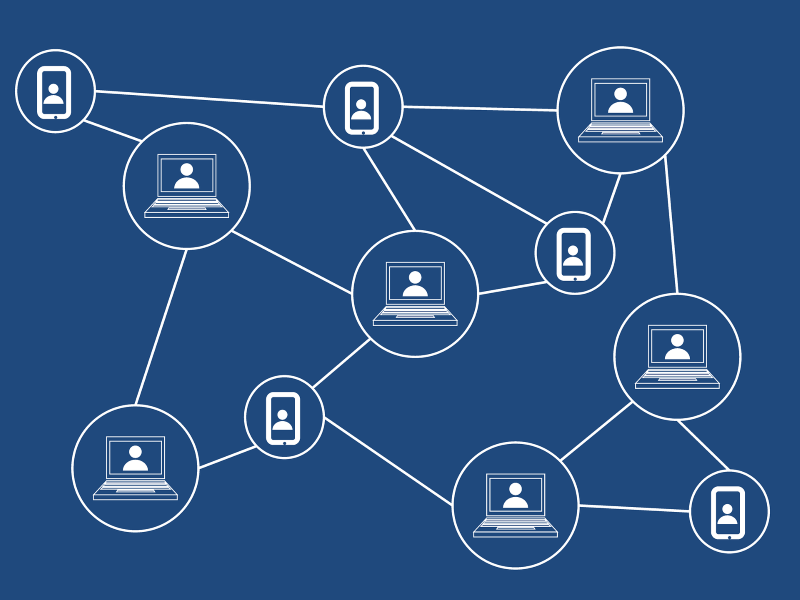Harnessing Blockchain Technology to Revolutionize Diabetes Clinical Trials

Picture from: Clinical Trials Arena
The advent of blockchain technology has opened up a plethora of opportunities to transform various industries, including healthcare. In the realm of clinical research, decentralized clinical trials (DCTs) have emerged as a promising alternative to conventional clinical trials, offering the potential to enhance efficiency, accessibility, and patient engagement, particularly for chronic conditions like diabetes. However, concerns regarding data security, privacy, and regulatory compliance have hindered the widespread adoption of DCTs.
Blockchain technology, with its inherent characteristics of immutability, transparency, and security, holds immense potential to address these critical challenges and pave the way for a new era of decentralized diabetes clinical trials. By leveraging blockchain's decentralized architecture and secure data-sharing mechanisms, researchers can establish a robust and transparent platform for conducting clinical trials while ensuring patient data privacy and regulatory compliance.
Addressing Regulatory and Interoperability Challenges
Despite the transformative potential of blockchain-enabled DCTs, several regulatory and interoperability challenges remain to be addressed. The lack of a comprehensive regulatory framework surrounding data privacy, consent management, and compliance poses a significant hurdle to the widespread adoption of blockchain-based clinical trials. Additionally, ensuring seamless interoperability between blockchain platforms and data standardization across systems is crucial for successful implementation.
To address these challenges and harness the full potential of blockchain in decentralized diabetes clinical trials, this study aims to develop a conceptual framework and prototype a blockchain-enabled DCT platform. The conceptual framework will provide a holistic understanding of the regulatory, ethical, and interoperability considerations involved in integrating blockchain into DCTs for diabetes treatments.
Benefits of Blockchain Technology for Clinical Trials
- Increased Data Security and Privacy: Blockchain's decentralized and secure nature can safeguard patient data from unauthorized access and manipulation.
- Enhanced Transparency: Blockchain provides an immutable and transparent record of all transactions, ensuring that data remains verifiable and auditable.
- Improved Patient Engagement: Blockchain can empower patients to manage their data and participate actively in clinical trials.
- Streamlined Regulatory Compliance: Blockchain can facilitate secure and compliant data sharing with regulatory bodies, reducing administrative burdens.
- Enhanced Trial Efficiency: Blockchain can streamline data collection, analysis, and reporting, leading to faster and more efficient clinical trials.
Conceptual Framework and Platform Development
The prototype platform will incorporate features for secure data management, patient engagement, and regulatory compliance. It will leverage Hyperledger for core consent management features, data sharing, and smart contract automation on the Polygon Matic blockchain. The platform's security will be validated through rigorous testing, including penetration testing, to safeguard patient data and ensure the integrity of the blockchain network.
Evaluation and Policy Recommendations
The effectiveness of the proposed blockchain-enabled DCT platform will be evaluated through pilot testing in a simulated decentralized diabetic trial environment. Surveys, interviews, and focus groups will gather feedback from participants and stakeholders to assess the platform's usability, feasibility, and impact on data security, privacy, patient engagement, and trial efficiency.
The findings of this study will be synthesized to develop evidence-based guidelines for ethically and securely integrating blockchain in decentralized diabetes trials. These guidelines will provide policymakers and healthcare organizations with actionable recommendations for supporting and implementing blockchain-enabled DCTs, paving the way for a more efficient, accessible, and patient-centric approach to clinical research.
Conclusion
Blockchain technology has the potential to revolutionize decentralized clinical trials for diabetes, offering significant advantages in terms of data security, privacy, transparency, patient engagement, and regulatory compliance. By addressing the existing regulatory and interoperability challenges, blockchain-enabled DCTs can pave the way for a new era of clinical research that is more efficient, accessible, and patient-centric.
*****
Thank you for reading and please drop a comment



































